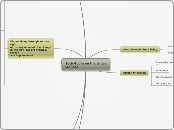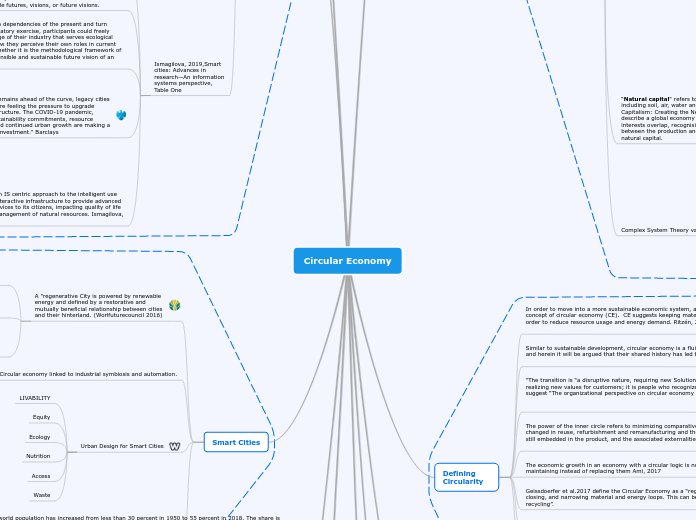3) Islam and Leadership
Prophet Muhammad S.A.w as a Perfect & an Exemplary Leader
2. Social
The Islamic community ( ́ummah) built by him in Madinah was intended to foster solidarity among the Muslims
1. Political
He managed to establish a religious-political structure, namely: "State of Medina"
Characteristics of Leaders in Islam
4. Uswah Hasanah: Excellent example
Prophet's characteristics as a leader
2) Adalah (Justice)- Islam urges Muslims to implement justice to all.
1) Siddiq (truthfulness)- The truth should always be spoken, and a leader should always act honestly (surah al-Najm 53:3-4)
To ensure dependability and responsibility to society, truthfulness is required in speech, intention, resolution fulfilment, action, and all stations along the path.
Uswah Sayyi'ah can be found in following the example of others in matters contrary to his teachings
Uswah Hasanah can be found in the Messenger S.A.W. because those who follow his example will be on the straight path that leads to Allah's blessings
3. Imkaniyyah: Full capability
Example: Prophet Yusuf (Surah Yusuf 12:56)
4) Intellectual ability: His ability to provide a wise solution to Egypt's economic recession demonstrates his intellectual strength and wisdom in ensuring the people's well-being.
3) Mental ability: His ability to remain patient and steadfast in the face of adversity since childhood demonstrates his mental fortitude in dealing with any situation that necessitates the calmness of a leader.
2) Spiritual elevation: His ability to resist women's seduction demonstrates his spiritual fortitude and high moral character in holding the position
1) Physical ability: He was young and physically attractive, indicating his complete physical ability and healthy well-being in completing the task as a leader
Acapable leader is defined by three qualities: physical prowess, spiritual advancement, and outstanding mental ability
2. Fatanah wa Hikmah: Knowledgeable and wise
Al-Qur'an also depicts a number of great leaders who possessed knowledge and wisdom
3) Prophet Yusuf A.S- He was appointed finance minister by the King of Egypt due to his economic knowledge and wisdom (Surah Yusuf 12:54-55)
Communication is essential for persuading followers to take action
leader must clearly communicate the mission's purpose and inspire others to follow it
good communication skill (al-Tablīgh) is another leadership quality
2) Prophet Dawud and Sulayman A.S- Allah SWT chose both prophets not only to be His Messengers in preaching Tawhid to their people, but also to be great leaders in their kingdoms due to the knowledge given to them (Sūrah al-Naml 27:15)
1) Talut- Due to his wisdom and physical power, Allah S.W.T. picked him to be the king of Ban Israil (Surah al-Baqarah 2:247)
Leaders are expected to be knowledgeable and skilled in both individual and collective obligatory knowledge (fard al-ayn & fard al-kifayah)
1. Taqwa (piety): God-conciousness
Al-Qur´ān also illustrates the example of a leader who was not Muttaqīn as a lesson to be learnt. e.g: Firʿawn, who disbelieved in Allah S.W.T (Surah al-Qasas 28:4)
an Islamic leader would not lead his people to breach Allah’s Sharīʿah and turn their backs on the Prophet’s Sunnah (Surah al-Nisa 4:59)
al-Qur´ān, Allah S.W.T. mentioned the stories of His Prophets who were given the power of leadership, such as Prophet Dāwud A.S, Sulaymān A.S and Yūsuf A.S (Surah al-Naml 27:40)
distinct characteristic of leaders in Islam which differentiate it from the non-Islamic concept of leadership
cautious because he knows that God sees his actions and thoughts
Qur’anic commentators define Taqwā as being conscious of God, pious toward God, and god-fearing
Responsibilities of Khalifah
Khalifah Al-Khassah
To give personal attention to the details of government
To appoint competent officials
To pay salaries and administer public funds
To organise and collect taxes
To punish wrongdoers
To protect the territory of Islam
To decide on legal disputes
To defend and maintain the religion
4) Promotion of Goodness and Prevention of Vices
Failure to accomplish this duty will result in the destabilisation of world development and environmental pollution
man is dutybound to enjoin good and forbid evil according to his ability and capacity
a man ought to know the Qur’anic mechanism to ensure that Allah's commands are executed accordingly, and His prohibitions are avoided
3) Administration and Development of the World
Any form of corruption and mischief must be avoided and combated
to build up the world to make it a comfortable place to live
this āyah requires mankind to develop the earth for their benefit
develop the world and build up civilisation imbued with
the values of humanity- Surah Hud (11:61)
2) Performance of ʿAmal Ṣāliḥ
Surah al-Nur (24:55)
to make sure the duty given to him is fulfilled with the standard of ʿamal ṣāliḥ
1) Implementation of Wills of Allah
man is not endowed with absolute freedom to exercise it according to his desires.
functions:
4. in the administration of His law, man will execute his will and fulfil his purpose of life
3. the administration of laws is strictly in conformation with the limits prescribed by Him
2. a man merely implements His laws
1. the absolute authority vests in Allah
man acts as a representative of Allah on the earth.
actualise his purpose of life and discharge Allah's duties in conformation with the Divine laws
Classification of Khalifah
Khalifah Al-Khassah (Khalifah in Political Inst)
Duty of replacing and succeeding the Prophet S.A.W. in establishing Islam as a religion and administrating the worldly affairs following Islamic teachings
Qualification of leader
2. Al-Quwwah- physical strength (all aspects of human strength)
1. Al-Amanah- internal qualities
Surah Sad (38:26) refers to prophet Dawud A.S, Allah commands him to judge them justly and fairly and not according to his desire
Khalifah Al-Ammah
Duty of every individual Muslim according to his capacity to develop and improve the quality of life in this world to be a conducive place, which eventually leads to the attainment of Allah’s pleasure
Khalaif cited from Surah Fatir (35:39) signifies humankind in general as khalifah
only confined to Muslims/ those who believe in Allah and worship Him alone
The divine order sets that non-believers are perished and replaced by the believers- refers initially to all mankind that succeds one another
Natural Khalifah- all mankind by nature are vicegerent of Allah
suppose to discharge the responsibilites according to what Allah ascertained in His revelation
the covenant (misaq) is fitrah that Allah imbued
Allah does not restrict the dignity of this position to a certain group of mankind
Terms: Khalīfah kawniyyah (Vicegerent in the universe)- Farhat, Natural khalīfah- Sayyid Sikandar. Al-Najjār- Khilāfah wujūdiyah (Vicegerency in existence).
Al-Najjar somehow accurate because he relates the purpose of human existence in universe- all human beings irrespective of their belief,race,color,ideology and social status
Concept & Principle of Leadership in Islam
Definition of khalifah
3. Khalaif
Kalif,khalfah,nations'faith.khalāif as a derivative of the word khalīfah signifies the nations succeeding perishable past nations destroyed due to their rejection of faith
Surah Yunus (10:14)- signify a certain group of people
2. Vigerency of Man on the Earth (fil ardhi khalifah)
refers to Adam A.S and who follow him in obedience to Allah
Al-Tabari: Allah creates His vicegerent to implement His rulings among His creatures
1. Vigerency of Adam (khalifah adam)
Al-Qurtubi: khalifah refers exclusively to prophet Adam
Surah Al-Baqarah (2:30)- Allah announces His agenda to create a khalifah on earth
should based on principle of Tawhid (basis of everything in Islam)
leader should act only to implement Allah's laws on earth
focus of leadership in Islam -> do good; protect,treat,guide group member
based on principle of trust (amanah)-trusted to lead a group-held responsible to both group members and God
Leadership (Al-Qiyadah) associated with al-Siyāsah, al-Siyādah, al-Imāmah, al-´Umara´, al- Ri‘āyah, al-Wilāyah, al-Ri´āsah and al-Khilāfah
Definition of Leadership
Relation
guidance; presence of particular influence on a relationship
Process
ability to lead/influence people; influence an organised group to accomplish its goals
Position
office/position of leader; head of political party etc
process by which the leader seeks the voluntary participation of followers to reach organisational objectives









